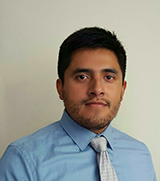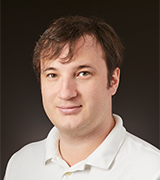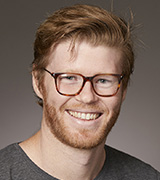Alumni Newsletter September 2016
New faculty join Western Economics
Three new Assistant Professors joined Western Economics on July 1, 2016: Victor Aguiar from Brown University, Nail Kashaev from Penn State; and Joseph Mullins from NYU. Recently all three answered a series of questions for this faculty profile about their research, teaching and move to Western.
Victor Aguiar
1. What areas of economics do you specialize in?
My research interests are bounded rationality, random choice and non-parametric econometrics.
2. What are the practical implications of your work?
My work could be used to better model and predict consumer behaviour, this in turn has many uses, e.g., policy ex-ante evaluation, marketing research among others.
3. What are your first impressions of Western and London?
I really like Western because it seems like a very good mix of a friendly and a competitive environment. London is a nice city that I am still getting to know.
4. When you are not working, what do you do?
My wife and I enjoy taking long walks with our dog in the city parks and going on long holidays travelling.
5. What's the best piece of advice you have ever received?
I think the best piece of advice I have ever received came from my parents, who always told me that getting a good education was the centerpiece of personal progress.
6. So far, who has had the greatest influence on your education and the start of your career path?
Roberto Serrano, my advisor at Brown University, definitely was a very good influence in my career path. He not only inspired me to switch from a previous academic interest to microeconomic theory due to his passion for the subject, but he is also a good friend who always has advice on how to navigate academic life.
Nail Kashaev
1. What areas of economics do you specialize in?
My primary field of interest is Econometric Theory. My research interests also lie in the areas of Industrial Organization and Applied Econometrics. In particular, I focus on discriminating between different model assumptions in environments where strategic interaction among agents cannot be neglected.
2. What are the practical implications of your work?
Entry subsidies are often used to incentivize the provision of strategic goods such as broadband internet access. My work helps policymakers to make robust predictions on the effects of such policy interventions.
3. What are your first impressions of Western and London?
Extremely positive. Everyone at the department and the university are very friendly and helpful.
4. When you are not working, what do you do?
I am a big fan of science fiction and fantasy literature.
5. What's the best piece of advice you have ever received?
There is no such thing as a stupid question … almost surely.
6. So far, who has had the greatest influence on your education and the start of your career path?
My PhD advisors, Joris Pinkse and Sung Jae Jun.
Joseph Mullins
1. What areas of economics do you specialize in?
I specialize in labor economics and the economics of child development. Eventually I'd like my work to broaden enough that it would be easier just to say "Applied Microeconomics".
2. What are the practical implications of your work?
I think my work in these fields almost always grows around important policy problems. For example, in recent work I look at how antipoverty programs can be used to support the emotional and cognitive development of children. This analysis gives insight into the trade-offs in program design that state governments in the U.S. face, and may even have implications for Ontario's upcoming Basic Income experiment.
3. What are your first impressions of Western and London?
I'm still settling in, but coming from NYU it's nice to be back on a real campus, which has really come alive since Winter when I was last here. I love the combination of the classic older buildings with the newer, kind of brutalist architecture. London has been great so far... I'm finding a lot of great food and warm personalities about the place.
4. When you are not working, what do you do?
I'm usually either exercising or laying completely motionless watching Netflix. It's kind of a Dr. Jekyll/Mr. Hyde situation. I also love playing my guitar and camping with my partner.
5. What's the best piece of advice you have ever received?
From Walt Whitman: "Love the earth and sun and the animals, despise riches, give alms to everyone that asks, stand up for the stupid and crazy, devote your income and labor to others, hate tyrants, argue not concerning God, have patience and indulgence toward the people, take off your hat to nothing known or unknown, or to any man or number of men [sic] -- go freely with powerful uneducated persons, and with the young, and with the mothers or families -- re-examine all you have been told in school or church or in any book, and dismiss whatever insults your own soul; and your very flesh shall be a great poem, and have the richest fluency, not only in its words, but in the silent lines of its lips and face, and between the lashes of your eyes, and in every motion and joint of your body."
6. So far, who has had the greatest influence on your education and the start of your career path?
It has to be a tie between (1) my mother, who always upheld and revered academic inquiry, which I think sowed the seeds for me wanting to go down this path; and (2) my adviser at NYU, Chris Flinn, who really took me under his wing and taught me a lot about writing papers.
Return to the Economics Alumni Newsletter on the web.

